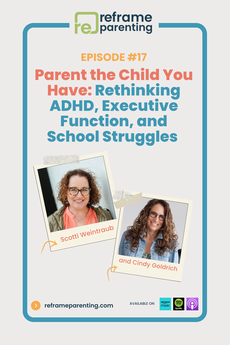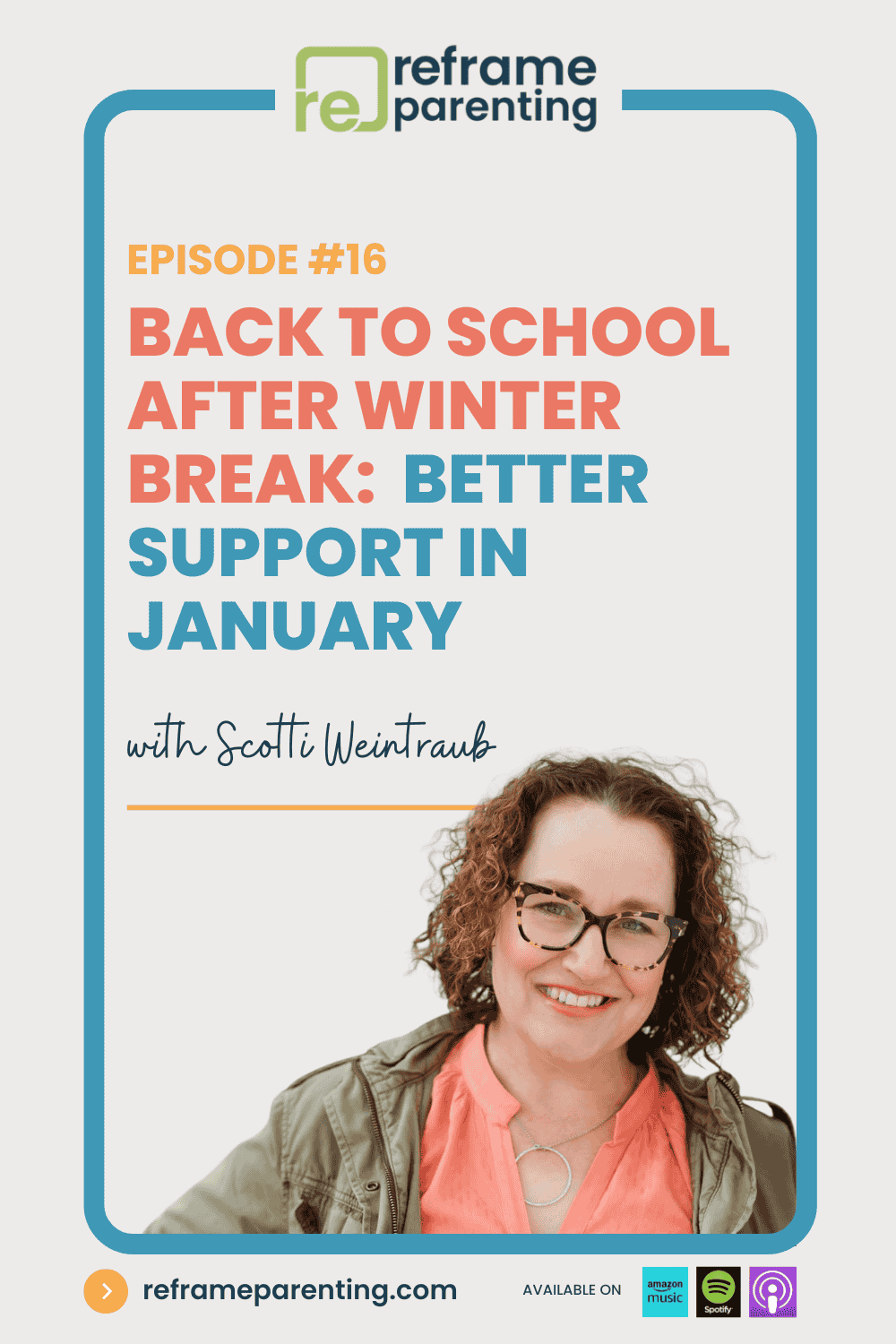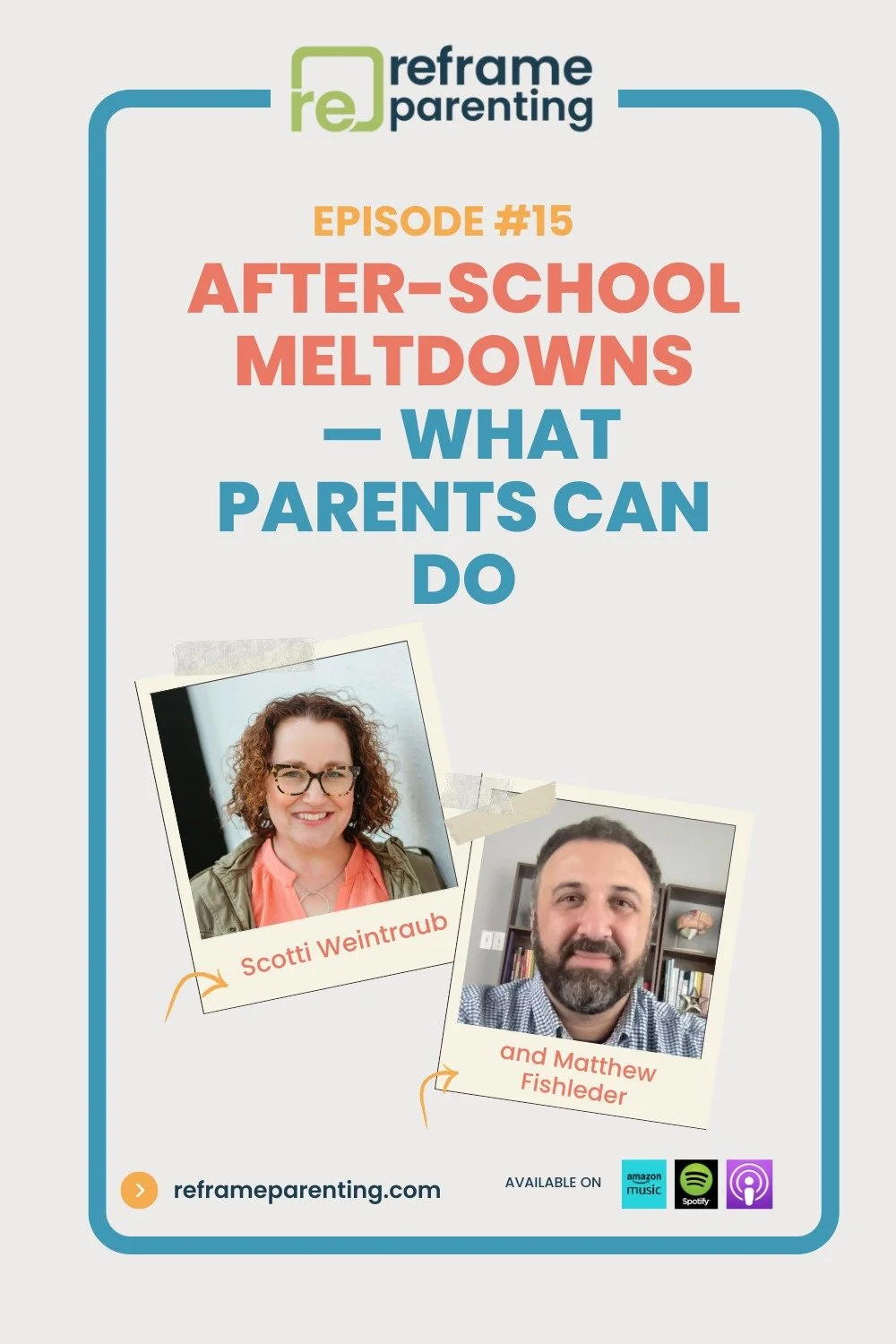9: Back-to-School Transition Strategies
Back-to-school season can feel like a whirlwind—for kids and parents. In this episode of Unlocking School Success, I’m sharing practical strategies (and a powerful mindset shift) to help make the transition less stressful and more connected. From resetting routines to building strong teacher relationships early on, these are the tools that can help your family start the school year with more calm and confidence.
Key Takeaways:
Reset routines with flexibility.
Ease kids into new schedules, test different approaches, and involve them in problem-solving to find what works best.Connect early with teachers.
Introduce yourself, share insights about your child’s learning style, and set the tone for a collaborative relationship.Normalize the hard parts.
Remember that overwhelm during this season is common—for both parents and kids.
Resources:
Another episode about Back to School: Managing Back to School Anxiety and Transitions with Dr Gila
Connect with Scotti:
Website
Instagram
Threads
LinkedIn
Ask a Question:
Got a school question on your mind?
Submit it as a listener question for a future episode
Transcript
9: Back to School Transition Strategies
[00:00:00] We are only a couple of weeks into the school year where I live, and mornings they've been pretty messy sometimes, and my son's coming home exhausted. So if that sounds like your house, you're not alone. The transition is hard, even for parents who feel prepared.
Welcome to Unlocking School Success, a podcast with the smart strategies and support parents need to help their kids thrive. I'm your host, Scotty Weintraub, parent coach, school navigator, and your go-to guide for turning School Stress and Chaos into clear strategies that work. Let's get started.
Hello and welcome back to Unlocking School Success. Today, I wanna talk more about the Back to School transition, and you may have listened to the last episode with Dr. Gila, where we got into a [00:01:00] great conversation about the transition and anxiety that can happen around back to school. Today I am just gonna talk a little bit about some of the strategies that I've personally used during this transition time, and we'll just hopefully normalize that this is a time that doesn't always feel very smooth, so stay with me to the end and I'll share my favorite mindset shift that has helped me through the years.
So I wanna start our conversation today by acknowledging that this kind of transition is hard. And I've said it before, but I think it bears repeating back to school, is a time of transition, not just for your child who is likely going into new classrooms with new teachers. Maybe they're even in a new school building, and that's huge, but it's also a big time of transition for parents.
We've maybe been on vacation over the summer, or we've had our kids home, or they've been in day camps [00:02:00] or other activities, but we haven't had the day-to-day rhythm of the school year. And so it can feel like a lot to move from one rhythm to another and don't let me forget about all of the paperwork and things that have to be accomplished at the beginning of the school year.
Signing up for afterschool care, filling out paperwork for the school, finding activities that start in the fall, like sports. All of that just adds to the volume of work that parents have to do in the SPAC to school time. So I wanna normalize that It's okay to also feel overwhelmed, maybe exhausted yourself.
Yeah, despite the fact that back to school can be a really fun time too. I love some new school supplies, but I also know [00:03:00] that back to school can be hard for all of us, so I'm trying to balance. Those anticipatory anxious feelings that are fun and thinking about the possibility of the year and balance those with just the reality that we're in for a long school year.
And that means not only that there are new routines, but that our kids are getting older too. And so with each new school year comes new challenges academically, emotionally. Socially, all of those things come with a new year and with as time marches on. So if we know that the transition is hard, what are some things that maybe we can do to help make it a tiny bit smoother?
And these are a few that I have tried in the past. And one is just [00:04:00] to reset our routine and this. Is probably obvious that the routine changes we're no longer sleeping. In my case with teens at home until noon. We're getting up much earlier. So some of it's just practical things of setting alarms, getting a new time schedule in place.
Sometimes we try that in advance and it can be helpful to. Ease our kids into those time, especially the time changes. But we can also use this to identify what some of those sticky points are. And for me, I'm thinking back about last year and mornings have been continued to be sticky. We have trouble getting out of bed, so I've been really leaning into strategizing with my child about.
What do you think can make this smoother? So really getting their input on how to make the routines work [00:05:00] better for both of us. And I know we talked about this in the last episode with Dr. Gila, but I'm really seeing the benefits of that in my house right now too. Another example that I've been trying to do is what can we do the night before to make the morning smoother?
And that seems to be also helping him not feel as stressed. And like we're all scrambling at the last minute and then getting to school late and that causing all sorts of other challenges and anxiety in and of itself. So we're, I think, routine resets, finding our new rhythm and knowing that we are not gonna get it all right the first time.
It's okay if we just work on one piece of it. If we work on, okay, we're gonna start setting the alarm at this particular time and see if that works, and if it doesn't work, we're gonna move the alarm to a different time. Maybe that will work. So we're just doing trial and error, and that seems to be, uh, [00:06:00] both keeping some of the pressure off so it doesn't feel so weighted like I'm nagging or that, they need to push back against my requests. So the other thing that I like to try to do this time of year that I found really great success with is to start building a connection with teachers from the beginning of the school year. And if your school has opportunities for you to.
Get in the school building to meet school staff. Please take advantage of them. This is a, an opportunity for you to perhaps walk the school halls with your child and ask them questions, see what their daily routine looks like on the inside, and it gives you the opportunity to touch base, to introduce yourself with this year's teacher or teachers.
This can be really helpful because one, it's just nice to put a [00:07:00] name to a face that the teacher you've been hearing about, that you've seen listed on their schedule to know what they look like and to meet them person to person, but also to be able to start developing that relationship with them to help your child succeed.
So, especially if your child has had trouble in school, I've found it really helpful to use even that brief encounter to say, hi, this is my child and I would love to find a time to talk with you about what has helped them succeed in school in the past. How can we set that up? And that's just an opportunity for them to say, oh, why don't you send me an email?
Or, why don't we set up a time to talk after school? All of those are just great openings to start building those relationships that will benefit both of you for the long term. And it allows you to also share a little bit at the very beginning of the [00:08:00] year about what your child needs in the classroom, what you know about their learning style, about how they learn and thrive best at school.
And to share that, maybe not in an in-depth way yet, but. To let the teacher know that these are important pieces that we're gonna need to keep addressing. So you could do that in an email too by saying, hi, I am so excited for the year ahead and can't wait to get to know you. I just wanted to share a little information about my child and how we've discovered they learn best, or this is what helped them last year.
Just providing that information, even if your child has an IEP or a 5 0 4, can give the teacher a headstart in learning and getting to know your child themselves.
So [00:09:00] finally, for my mindset shift, that has really helped me in the past and that. Is to not worry so much about everything being perfect or smooth and to focus on connection instead. So if I let go of the fact that maybe the mornings are messy, they're not gonna be smooth sailing every time, but if I can handle that challenge with calm with some.
Questions with asking my child to help problem solve, then that builds connection rather than expecting perfection. So I hope that this little mindset shift inspires you to think about the challenges of back to school in a slightly different way.
Thank you so much for listening into unlocking school success. If you have enjoyed this episode, I hope that you'll share it with someone you know who [00:10:00] might find value in it, for whom back to school is proving to be a bit challenging. You can find more information about. Me and reframe parenting at reframeparenting.com and you'll also be able to find all of our show notes for this episode and all of our episodes there as well.
I wanna thank you for listening because it means a lot to me to know that you all are interested and eager to support your kids in the best way you can. Thanks for listening. We'll see you next time.








